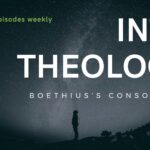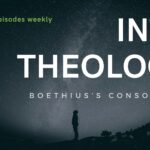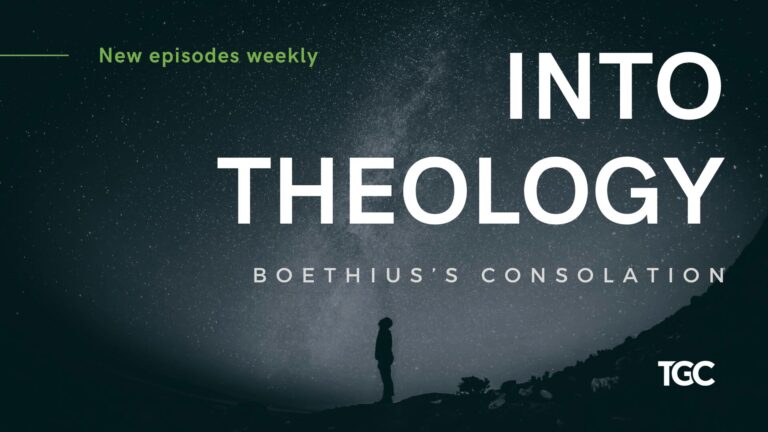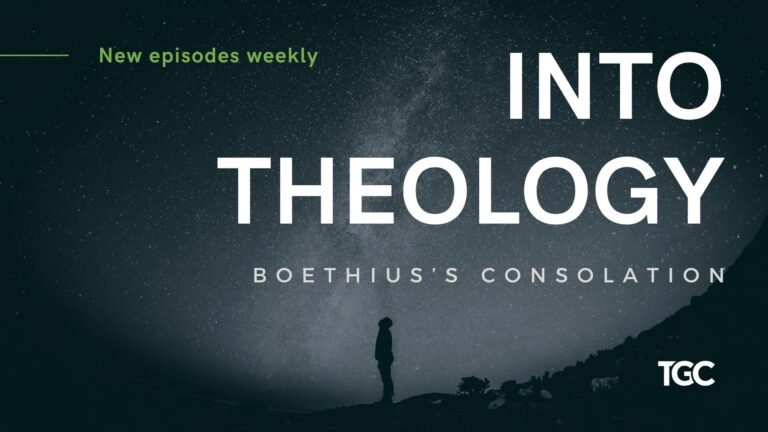The whole creation groans under a curse. Despite the curse, due to God’s goodness, he guides the world by his Providence. Providence means that God governs everything.
More specifically, the doctrine of providence means that God ministers good despite a world that, apart from God’s providence, would rebel against us. We would be exposed to the elements. Only God’s providence prevents it.
There is a reason why Calvinists believe God’s sovereignty is so comforting. In ages past when safety was never guaranteed, this was a balm. And it is again now.
Press into God and his Providence. When we do so, we find creation under a curse, a Creator ever-granting goodness, and the hope of peace.
Providence
Some characterize John Calvin’s theology as harsh and terrible because of its emphasis on God’s sovereignty. While Calvin could use strong language to describe God’s sovereignty, when he speaks about Providence in the Institutes, he did so pastorally to comfort his hearers.
Calvin wrote, “For in times of adversity believers comfort themselves with the solace that they suffer nothing except by God’s ordinance and command, for they are under his hand” (Inst. 1.16.3). Yet God’s hand is not a hand of suffering or evil.
Nature by its fall into corruption can at times produce natural evil despite some who might suggest otherwise. For example, Daniel Harrell recently implied that the Coronavirus may not be evil. In fact, the virus is evil because evil means the privation of good, the corruption of what God created to be “very good” (Gen 1:31).
And this means that while corrupted viruses are not agents of evil—they are effects of natural evil, the corruption of what is good. Before the world’s turning, viruses would have been used for a good end according to God’s proclamation of creation being “very good.”
That is no longer true. Nature resists our efforts to subdue it. Were God to leave us to universal laws of nature without intervention, then we would be laid bare against the world’s corruption. John Calvin explains, “For nothing would be more miserable than man if he were exposed to every movement of the sky, air, earth, and waters” (Inst. 1.16.3).
God acts through his Providence to minister goodness to a world gone awry. Without God, we would be left bare and exposed to corrupt nature’s elements. The doctrine of Providence, therefore, means that God ministers goodness to an unruly world.
Privation
The seasons should cycle. Sun should shine. Sickness should not be. Yet at times winter prolongs, the sun shines without sufficient rainfall, and sickness comes. Nature is corrupt. As Paul writes, “the whole creation has been groaning together in the pains of childbirth until now” (Rom 8:22).
God permits the effects of the curse to run their course, while always and forever bestowing his goodness upon us through common grace. That we daily assume on God’s goodness—rainfall, the lack of a comet striking earth, and all other good things—shows that we have not learned to thank God for his goodness.
When he permits natural evil to run its course, we should not attribute evil to God. Instead, we should recognize that we live in a corrupt creation that groans for cosmic regeneration. The privation (removal) of God’s all-benevolent Providence in one area should awaken us to God’s ever-present goodness in all others.
The experience of creation’s privation of goodness and its cursedness, tell us more about ourselves than about God—although it does both. It, first of all, tells us that we live in a world that is not right. It reminds us that through sin, we lead not just ourselves but the whole creation into corruption and death.
It also tells us that God through the curse justly administers his creation, while always sharing of his goodness to bring us back to himself. God’s kindness is meant to lead us to repentance (Rom 2:4). Ultimately, God has provided peace for us now and also for all creation when Christ returns to judge the quick and the dead.
Peace
When Christ came, he did so to unite all things in himself whether in heaven or on earth (Eph 1:10). His work has cosmic implications. When he rose from the dead and ascended into heaven, he bestowed upon the Holy Spirit, the fulfillment of the promise made to Abraham (Gal 3:14).
The Spirit then unites us to the body of Christ so that we become one. The nations of the earth are blessed in the seed of Abraham because the Spirit unites us to the seed. He becomes our head, we his body.
Therefore, Christ has made peace between not only Jews and Gentiles in his body but also between us and God (Eph 2:14; Rom 5:1). Now, the whole church is the body of Christ, the temple of God in which the Spirit God and Christ dwells. As Paul writes, “In him you also are being built together into a dwelling place for God by the Spirit.” (Eph 2:22).
The reconciliation not only unites many peoples and humans to God, but it also reverses the curse of creation (Rev 22). One day, the curse will be gone in full which God’s Providence shows in part. We are united to each other, to God, and once again creation will return to its status of being “very good.”
Until then, Providence shows us God’s faithful commitment to his creation despite its dire state. It shows that despite the corruption of the world, God remains faithful. Seedtime and harvest will remain.
And we can press into God’s Providence so that we can, as Calvin says, “safely rest in the protection of him to whose will are subject all the harmful things which, whatever their source, we may fear” (Inst. 1.16.3).
In the end, God is in control. We may experience the effects of nature’s corruption, but God by nature is ever-beneficent goodness. So we can rest in him. His Providence is good, and he does prevent evil from its spread, corruption from full decay, and he will one day establish the new heavens and earth for us to dwell in.
Until that day, rest in God’s Providence as we experience the reality of a cursed world with the greater reality of an ever-good God who has reconciled us to himself and will one day unite all things in Christ, whether in heaven or on earth.












